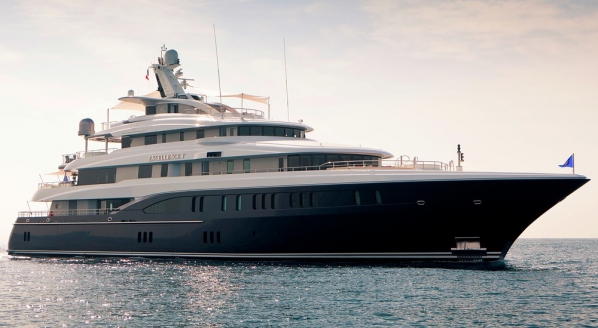‘Stakeholder Capitalism’ takes centre stage at World Economic Forum
Over 3,000 global leaders met to debate a route towards this business model…
With over 700 speakers, seven core themes, and 3,000 participants from around the world, various private meetings and countless action points, the World Economic Forum 2020 in Davos has certainly provided plenty for governments and private enterprises to consider, whether or not these lead to action is another discussion. That being said, one of the more interesting theories to emerge from Davos was the notion of ‘Stakeholder Capitalism’.
The seven key themes discussed by world leaders, Nobel laureates, scientists, and economists – to name a few – ranged from ‘Healthy Futures’, ‘Better Business’ and ‘Fairer Economies’ to the once-overlooked but now pressing conversation, ‘How to Save the Planet’. The overarching theme of the event was, ‘Stakeholders for a Cohesive and Sustainable World’, aiming to emphatically define ‘stakeholder capitalism’, as well as assisting the relevant governments and institutions in tracking the progress that has been made towards the Paris Agreement and the UN’s Sustainable Development Goals.
'Stakeholder capitalism' suggests that the purpose of a business goes far beyond ensuring financial return to its shareholders, but also ensuring benefits for all stakeholders (customers, employees, suppliers, shareholders...)
Over 3,000 global leaders, including 53 heads of state, met in the Swiss Alpine resort town, Davos, to debate a route towards ‘stakeholder capitalism’. Instead of shareholder capitalism, whereby businesses focus on generating profit for shareholders, stakeholder capitalism suggests that the purpose of a business goes far beyond ensuring financial return to its shareholders, but also ensuring benefits for all stakeholders (customers, employees, suppliers, shareholders, etc). ‘It is an open question if the global elite will build on the momentum of Davos 2020, and make decisive changes that can usher in a new era of shared prosperity,’ states the World Economic Forum website.
In order to act in accordance with the concept of stakeholder capitalism, the superyacht industry’s entire supply chain will need to review its practices, from the sourcing of materials to the remuneration of the labour force. And this extends to the products themselves, be that more environmentally-conscious-operated vessels, or more efficient and better-optimised technology on board.
In contrast to shareholder capitalism which often misuses resources to increase shareholder returns, a charter vessel, for example, operating within the stakeholder model, will result in the ideal of ‘happy crew, happy owner’, creating long-term value for all those involved...
In contrast to shareholder capitalism which often misuses resources to increase shareholder returns, a charter vessel, for example, operating within the stakeholder model, will result in the ideal of ‘happy crew, happy owner’, creating long-term value for all those involved.
By ensuring everyone on board benefits from the vessel’s purpose, guests will be satisfied by the experience they are having, crew will be more likely to stay on board for longer because they are happier, and the vessel will increase in popularity on the charter market due to glowing reviews and an increased quality of service. This could also have tertiary benefits, such as a more consistent and rigorous maintenance programme, reducing operational expenditure and time off the water.
Image: World Economic Forum (wef.org) /REUTERS /Arnd Wiegmann
NEW: Sign up for SuperyachtNewsweek!
Get the latest weekly news, in-depth reports, intelligence, and strategic insights, delivered directly from The Superyacht Group's editors and market analysts.
Stay at the forefront of the superyacht industry with SuperyachtNewsweek
Click here to become part of The Superyacht Group community, and join us in our mission to make this industry accessible to all, and prosperous for the long-term. We are offering access to the superyacht industry’s most comprehensive and longstanding archive of business-critical information, as well as a comprehensive, real-time superyacht fleet database, for just £10 per month, because we are One Industry with One Mission. Sign up here.
Related news


Lessons from aerospace
What can the superyacht market learn from how the aerospace industry manages its supply chain?
Technology

BlackRock calls for an economic imperative
CEO Larry Fink says "we are on the edge of a fundamental reshaping of finance"
Business

Innovation for anthropogenic elevation
Seafloatech unveils modular surface mooring structure concept
Technology

WRF launches industry-wide code of conduct
Water Revolution Foundation's codified drive for change
Business

Ensuring optimal resale value of your superyacht
SuperyachtNews spoke to Rory Boyle from Burgess, about the key resale considerations for owners
Owner
Related news
Saving life in the ocean
5 years ago
Lessons from aerospace
5 years ago
BlackRock calls for an economic imperative
5 years ago
Innovation for anthropogenic elevation
5 years ago
WRF launches industry-wide code of conduct
5 years ago
Ensuring optimal resale value of your superyacht
5 years ago
Japan to house a ‘prototype city of the future’
5 years ago
The Decade of Action
5 years ago
NEW: Sign up for
SuperyachtNewsweek!
Get the latest weekly news, in-depth reports, intelligence, and strategic insights, delivered directly from The Superyacht Group's editors and market analysts.
Stay at the forefront of the superyacht industry with SuperyachtNewsweek




